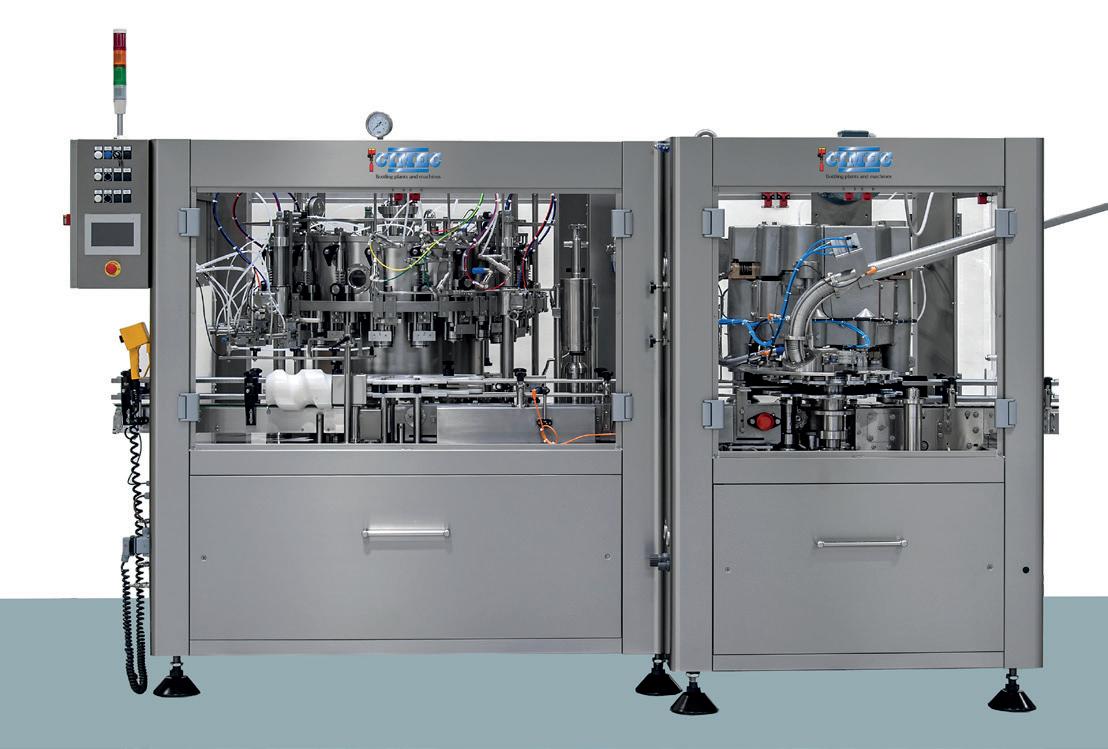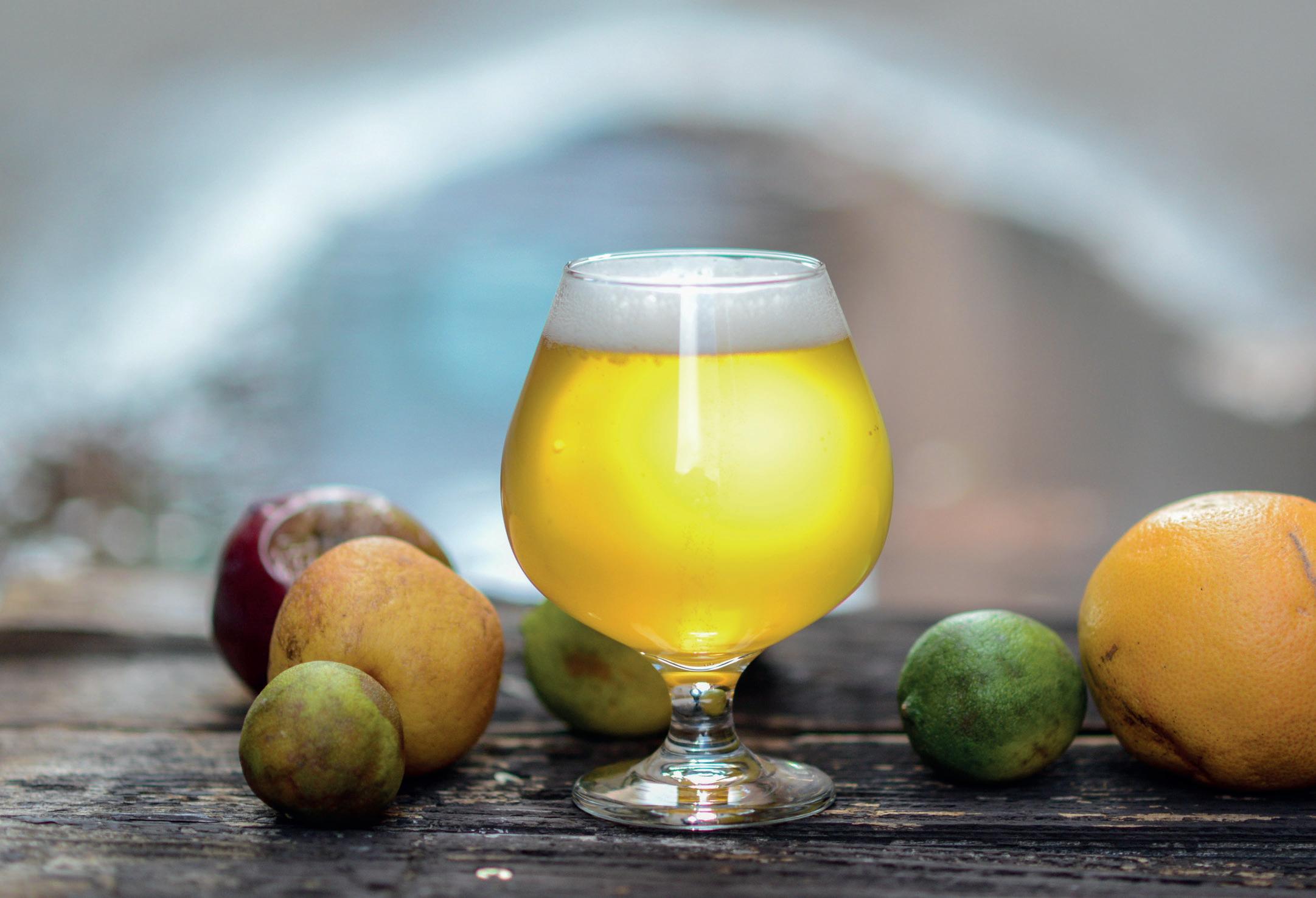
5 minute read
When fruit equals loot!
Lotte Peplow, Brewers Association
American craft beer Ambassador for Europe, looks at the growing global trend among brewers for using fruit in beer in increasingly experimental ways…
The use of fruit in beer is nothing new, just think of the fruited lambics of Belgium or tart Berliner Weisse of Germany, but in today’s ‘anything goes’ brewing landscape, the use of beer in fruit is seeing a resurgence as brewers around the world experiment with styles and flavours, both ancient and experimental.
Over in the States, American craft brewers, renowned for their innovation and creativity, are pushing the boundaries of brewing with fruit to develop ground-breaking new styles, tastes and flavours. According to the Brewers Association, the not-for-profit trade association representing small and independent American craft brewers, fruited beers, in their many different guises, are growing with the category up 8% in 2022*. They appeal to today’s newest legal drinking age consumers who are seeking less bitterness in their beer choices and exploring light, fruity, tart, refreshing styles with a soft mouthfeel or heavily fruited bold and complex fruit-forward beers. Fruited beers also appeal to the aging craft beer drinker who is tiring of intensely bitter beers and seeking something light or fruity.
903 Brewing Co from Sherman, Texas, releases four new heavily fruited sour beers per month based on fruits that are in season. Jeremy Roberts, co-owner/founder of the brewery, claims that the trend towards fruited beers is growing and explains: “We’re seeing more and more consumers getting burned out on beer. Ready-to-drink cocktails are a growing trend that people are increasingly drinking instead of beer. Getting people excited about beer again is not easy but heavily fruited sours and sours that taste like cocktails appeal to the non-beer drinkers and to those who are looking for more flavour.”

And it’s not only the youth of today who are enjoying such beers. Roberts continues: “We guessed that our heavily fruited sours would be just for the young drinkers, but that’s not the case. While hanging out in the taproom you will find people both in their 20's and 70's enjoying our heavily fruited sours!”
Technical challenges
Brewing with fruit has its challenges. Using real fruit can risk the chance of infection by wild yeasts on the fruit skins. Some brewers may boil the fruit first to reduce potential infection, but it can also burn off subtle flavours and aromas. Brewing with fresh fruit is expensive and availability of certain fruits is never certain. Yields and quality can be inconsistent because fruit contains large concentrations of water and will dilute the beer, but for any brewer getting it right, the rewards can be well worth it.
Fruit purees are easier to work with but should be 100% fruit and aseptically packaged. They are pasteurised, thus eliminating the risk of infection while maintaining the flavour integrity of the fruit, and they contain no added flavouring, preservatives or colourings. Extracts also have a part to play, and many are derived from natural sources.
Extracts can do wonders for boosting natural fruit flavours post-fermentation. Frozen fruit, dehydrated fruit, fruit powder, concentrate and freeze-dried fruits are other products available to brewers for use in beer.
Fruit can be added to almost any style of beer but is most commonly used in low-hopped wheat or blonde ales, Berliner Weisse and sour beers, hazy/juicy IPAs, barrel-aged beers and even pastry stouts. Fruit can work with a broad spectrum of alcohol strengths and provides sweetness that can be balanced by a high level of acidity. Where and when fruit is added in the brewing process will impact the character of the finished beer, i.e., before fermentation to allow the yeast to convert sugars into alcohol and biotransform unique fruity esters and flavours, or after fermentation to prevent the sugars from fermenting out. The latter will leave the final product sweeter by maintaining the subtle fresh fruit flavours.
Continued on page 57

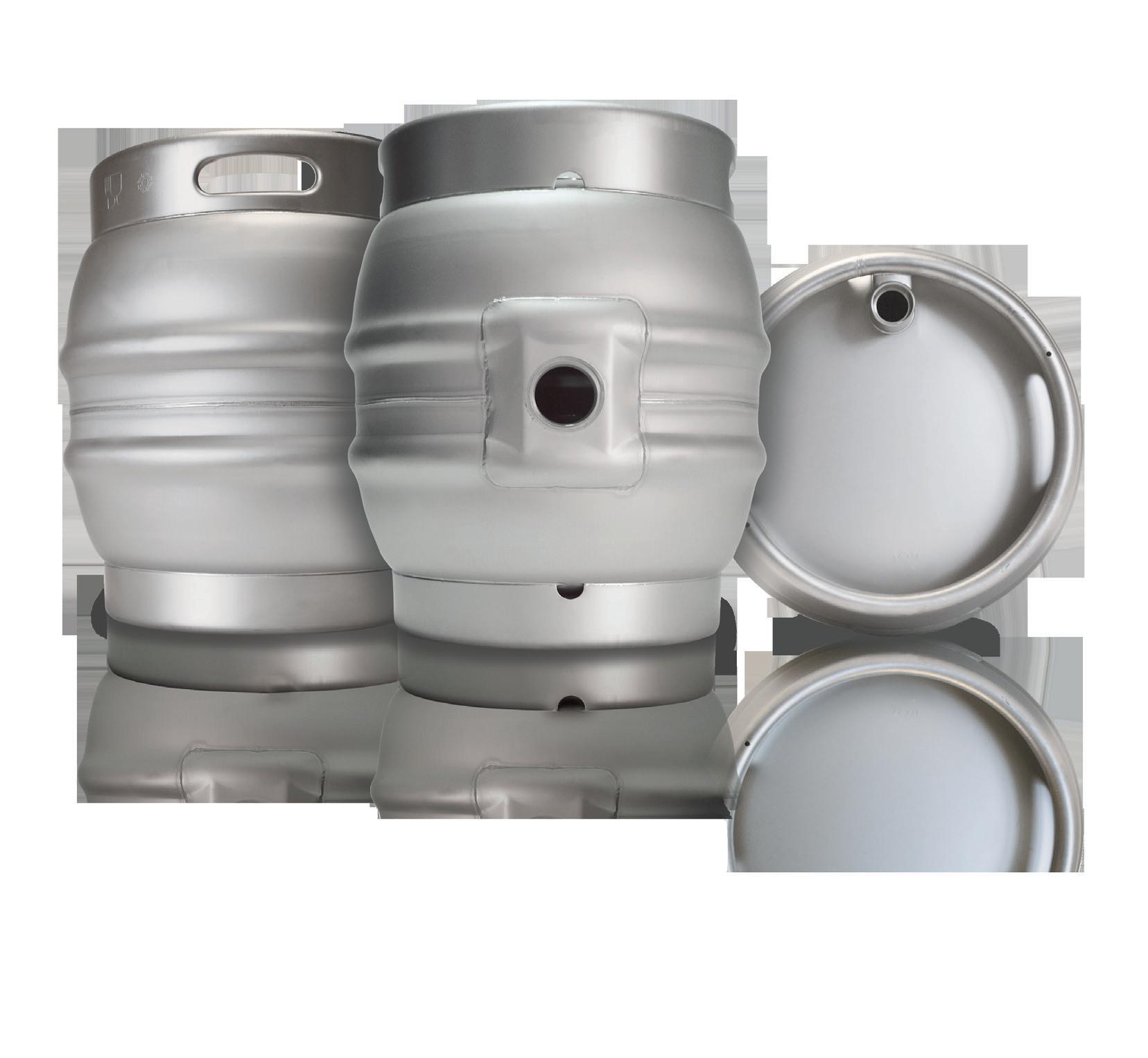


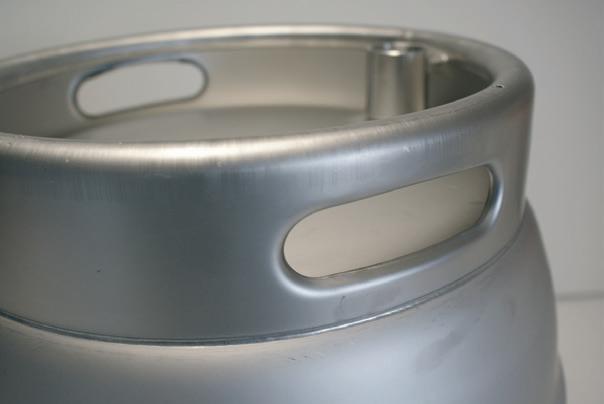

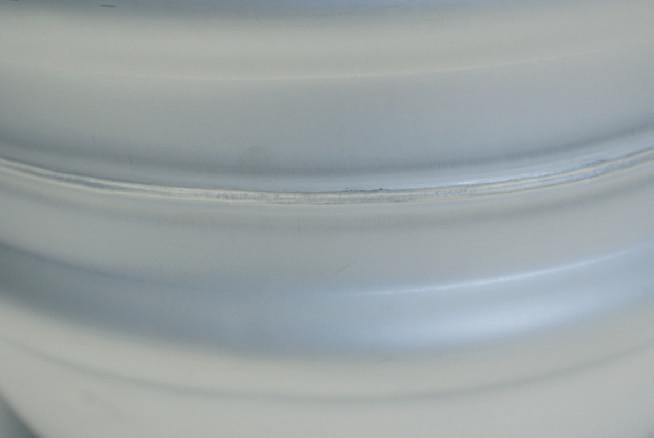

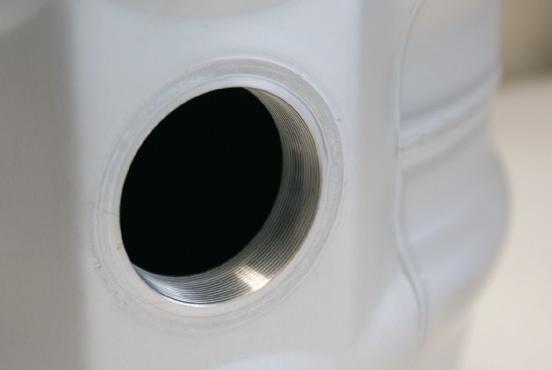

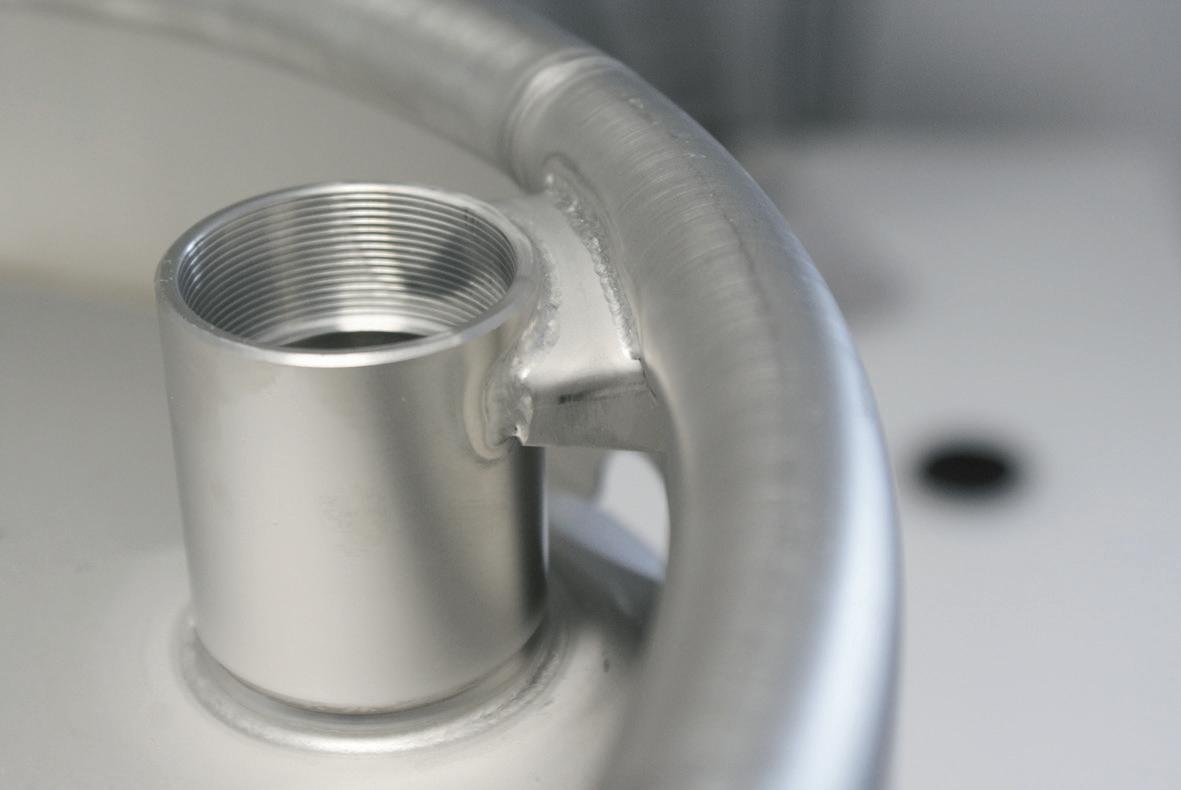

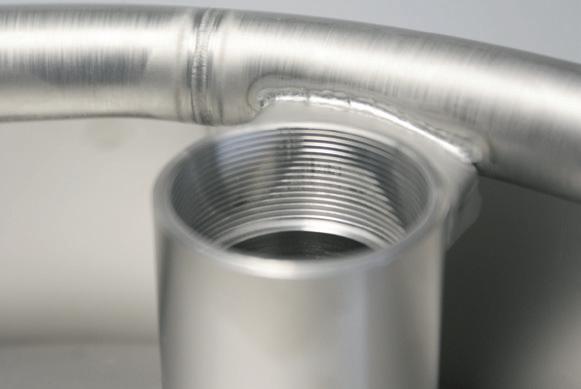

Channeling creativity
Brewing with fruit opens up a world of creativity. Urban Artifact, a brewery in Cincinnati, Ohio, is the USA’s largest ‘sour’ only brewery and uses more fruit than any other brewery in the country, i.e., over a million pounds of puree per year! Bret Kollmann Baker, COO & Brewmaster of Urban Artifact explains: “We were established in 2015, and the first couple of years were rough. We knew that tart and fruited beers were going to be a major thing but didn’t know it would take a couple of years to break down wrong perceptions about fruit beer being for ‘women’ or tart beer being ‘spoiled’.”
“Now the stigma associated with fruit beer in general is fading, and people are craving flavour and choice. We tend to skew to a slightly younger audience and have found great success with those that are open to new experiences, ideas, flavours and great tasting liquids which are attributes usually associated with younger people. We’re extremely proud of how our drinking demo skews almost 50:50 male female where the ‘normal’ US craft brewery sees a customer base that is closer to 70:30 male female.”
Kollmann Baker has every right to be proud claiming a long list of awards for Urban Artifact beers but ironically, not from the biggest international competitions where feedback tends to be that it ‘doesn’t taste enough like beer!’. Kollmann Baker says this is exactly their point as fruit is the main star in all their beverages.
Many flavour compounds that exist in fruit also exist in hops, for example citrus. An IPA brewed with citrussy Centennial hops may benefit from the addition of lemon zest to the finished beer to emphasise the Centennial hop characteristics. Alternatively, a small addition of passion fruit puree to a beer brewed with tropical flavoured hops such as Mosaic or Simcoe may help to amplify the tropical notes of the beer.
A US brewery producing both award-winning IPAs (without the addition of fruit) and sour fruited beers is DESTIHL® Brewery located in Normal, Illinois.
Matt Potts, Founder/CEO of DESTIHL, says: “We launched our Wild Sour Series in 2014 following increased interest from our original barrel-aged Saint Dekkera® Reserve Sour Series but have pivoted from more traditional, nonfruited styles (such as traditional Gose, Flanders Red, Berliner Weisse, etc.) to now releasing almost all of our sours with fruit because that’s what the consumer wants.”
DESTIHL was one of the first breweries in the US to package sours in cans, which was industry-changing since most sours before then were bottled, often with cork & cage, and expensive.
One of their best-selling single beers is a blonde ale, Hawaii Five Ale, that uses five different fruit purees – coconut, mango, peach, pineapple and pink guava!
DESTIHL’s fruited sours appeal to both men and women, old and young, but Potts thinks that younger drinkers especially like sours because, as he speculates: “Younger generations grew up hooked on tart and sour candy, so their palates are well-trained and accustomed to the ‘pucker’ factor.”
But can the audience for IPAs and fruited sours ever mix? You bet they can! Potts continues:
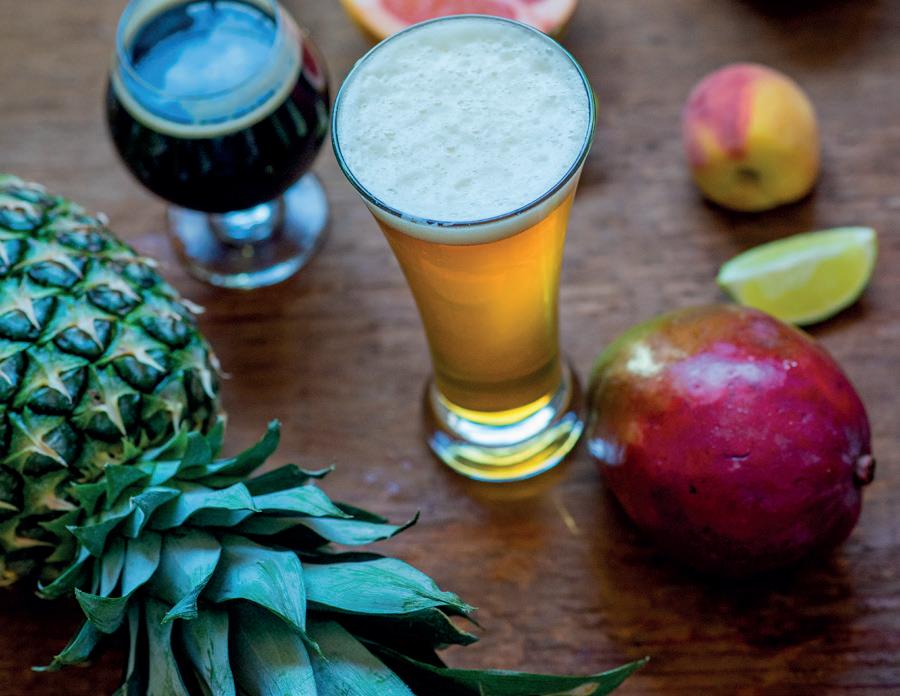
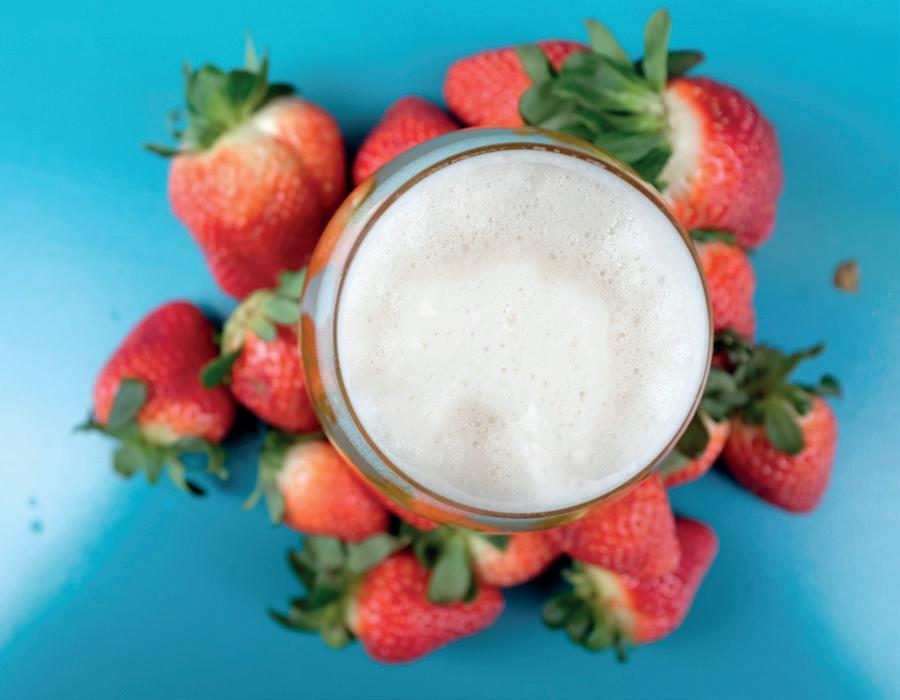
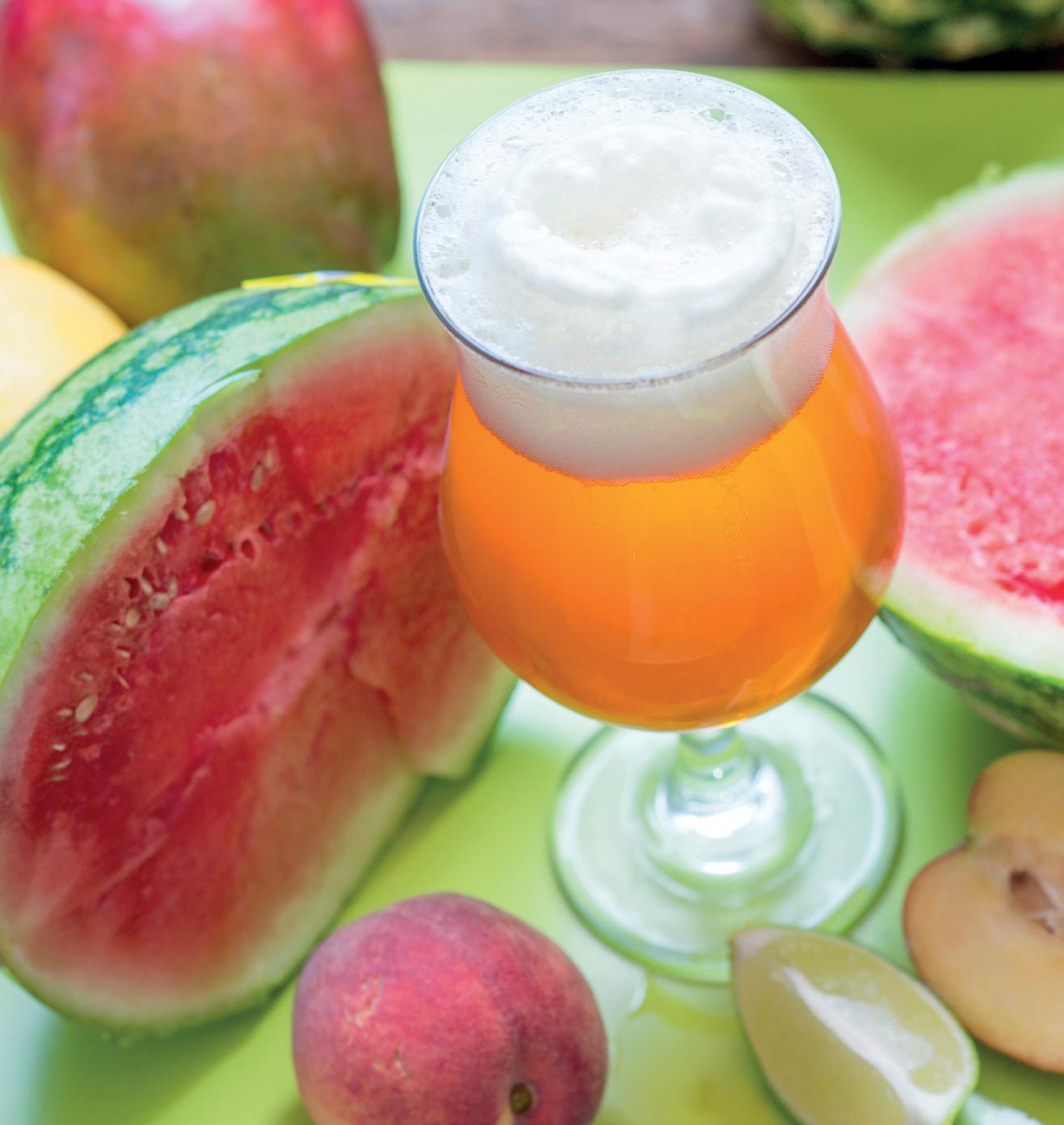

“I would say the biggest crossover with our DeadHead® Hazy IPAs and our fruited Wild Sour Series or Saint Dekkera sours is due to the low bitterness and natural fruitiness from either the hops in our IPAs or the fruits in our sours, whereas our DeadHead® IPA (west-coast style) appeals to the more traditional IPA consumer.” As consumer tastes evolve and brewers continue to innovate, we can expect even greater experimentation in future years to keep American craft brewing firmly at the forefront of global brewing creativity.
*The Harris Poll, consumer data
The Brewers Association publishes a wealth of resources downloadable free of charge from www.brewersassociation.org

All images used are copyright of The Brewers Association.



